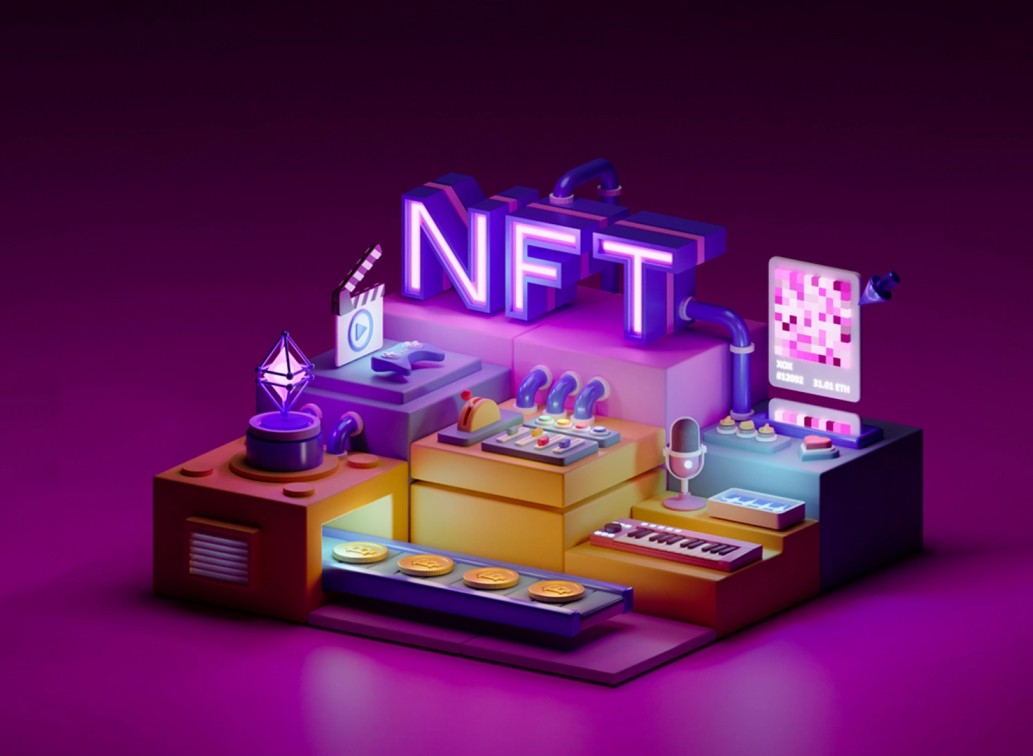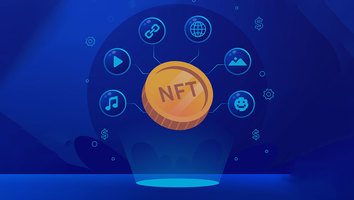When so many innovations are taking place over time it is important to talk about the NFT market as well, as it is one of the biggest innovations. By now, we know that NFTs are volatile, and the market experiences ups and downs from time to time. It is this volatility that attracts a large number of individuals to enter this world of NFTs. The NFT marketplaces are increasing over time, due to the fact that more NFTs are being minted daily. A statistical study reveals that, on average, NFT sales in a week range from $10 million to $20 million. In 2021, the second and third quarters witnessed a rise in NFT trading volume by 704% which shows that the NFT business has grown remarkably.
Since the NFT industry is gradually growing and developing, there is confusion about how to build a perfect NFT marketplace. To overcome this confusion, it is very important to understand the common mistakes that are usually made while building the NFT marketplace and how these mistakes can be avoided. The greatest challenge experienced in the NFT market is the uncertainty regarding the determination of NFT prices.
Working on NFT Marketplace
To know about the working of the NFT marketplace you must be aware of the activities in the NFT marketplace that are usually divided into two areas- minting and trading.
Minting- It is an easy process that allows you to take a digital file in JPEG, MP4, or MP3 format and convert it into an NFT.
Trading- Once the minting of NFTs is done, they can be purchased by anyone with a specific amount of cryptocurrency, provided they own a crypto wallet that is compatible with the marketplace. NFTs can be purchased via two methods: auction or fixed pricing.
What is to be included in NFT Marketplace?
Building an NFT marketplace is not a big deal provided you ensure to add certain features to it for better use and appeal. Some of the features that you must consider for including in your NFT marketplace to make it perfect include -
NFT listing- Listing can help clients easily categorize NFTs based on type, creator, and other parameters. The creations can then be minted and listed on existing data.
Storefront- This advanced dashboard provides important details such as name, bids, history, value, and much more.
Filter- Filter promotes quick search results by classifying and placing the NFTs in appropriate categories so that buyers can make the right decisions.
Search bar- It allows users to quickly look for available options, as it helps in better functioning and increasing NFT sales.
Integration of wallet- To enhance income, you must include a wallet in the marketplace.
Tracing- The traceability feature helps to keep track of the functioning of NFTs, covering NFT listing and sales. It also allows users to know about the trading and transaction details associated with an NFT.
Mistakes to Avoid While Building NFT Marketplace
Not understanding and following NFT standards- The workings of NFT must be clear for which the basics of crypto and blockchain must be known. The latest and most widely used NFT standard to date is ERC-721. Proper standards along with naming conventions must be followed by the NFT data/metadata structure, as per the ERC-721 standards. This feature assures that the NFTs created at your marketplace can be accessed by outside marketplaces. A perfect NFT marketplace must list and trade NFTs created on other marketplaces. Apart from ERC-721, you can also follow the standards set by blockchain protocols while creating an NFT marketplace. You must ask about the client's requirements and preferences before following the standards.
Not putting NFT commissions- When building an NFT marketplace, it is essential to carry out two commissions: royalty fees and marketplace commissions, to generate a good income. The royalty fee is a commission that goes to the owner when an NFT is sold by a user to another user (buyer) while on the other hand, the commission is the amount paid to the marketplace owner once the NFT is listed on a marketplace.
Say No to Blockchain backend write operation- The functioning of transactions in an NFT marketplace can take place via front-end and back-end processes. Users can sign the transaction via their private key that is in their crypto wallet. On the other hand, the backend process is handled by platform developers who are working in the backend and use their private keys. The suggested way is not to go for blockchain write operations from the backend; rather, it is advised that users should sign their transactions and follow all the steps while purchasing NFTs. In such a case, the user is responsible for personal transactions. In the concept of blockchain, a backend write operation is against the nature of Web3 decentralization.
Use of properly structured smart contracts- Smart contracts play an important role in the NFT marketplace, so the focus must be on their proper structuring. The two kinds of smart contracts that must be added while building an NFT marketplace are ERC-721 and controller contracts. ERC-721 allows users to mint NFTs, while controller contracts enable them to list their minted NFTs for sale.
Using 3rd party APIs- Using third-party APIs is a better option than storing NFT information in your marketplace database. NFT APIs contain information about users, NFT collections, transactions, and other details, making it easy to access information about NFTs. APIs can help you to get minute details and other information like- NFT metadata, transfer data, Price of NFT, ownership of NFT, and much more.
Data retrieval from Blockchain and not the database-Blockchain technology promotes decentralization to avoid central entities from creating monopolies and controlling users’ data. Any kind of NFT information or detail must be retrieved from the host blockchain rather than the database of the marketplace. Blockchain is a digital ledger technology where the data stored is immutable, whereas data on a marketplace database can easily be manipulated. To keep NFT data safe and tamper-proof, blockchain is better than a database for data retrieval. Metadata should also be on the blockchain, and not the database, to avoid problems for the users. Storing data and metadata on the blockchain provides better data privacy, immutability, transparency, and data security with fewer chances of data being deleted. Storing data in the database is indeed economical; however, the data can be misused and lost, which then becomes difficult to restore.
Final Say!
So, if you are looking for NFT marketplace development, then you don't need to think too much; simply follow the dos and don'ts to get the best results. NFT marketplaces are one of the most profitable businesses that require good planning and implementation. Therefore, for an ideal NFT marketplace, you must ensure good NFT marketplace design and development, smart contract development and auditing, and marketplace support and maintenance.



